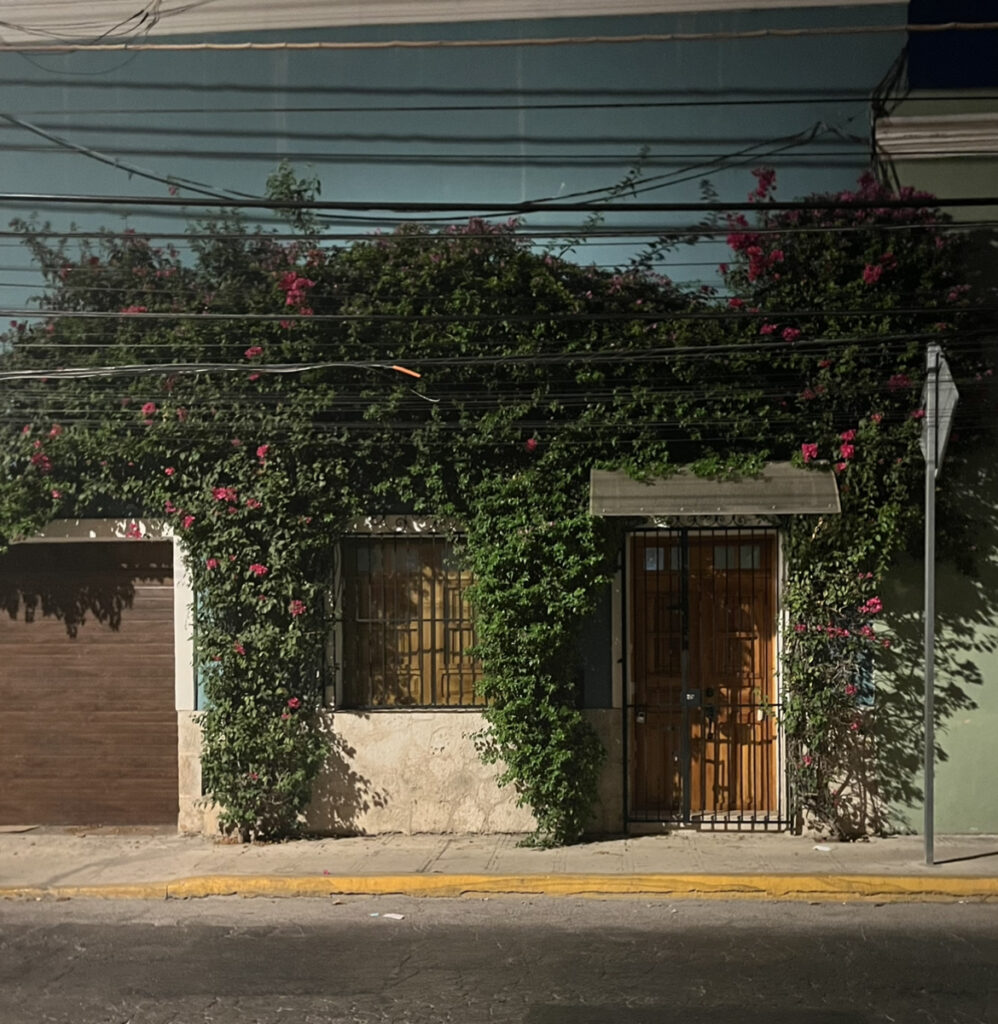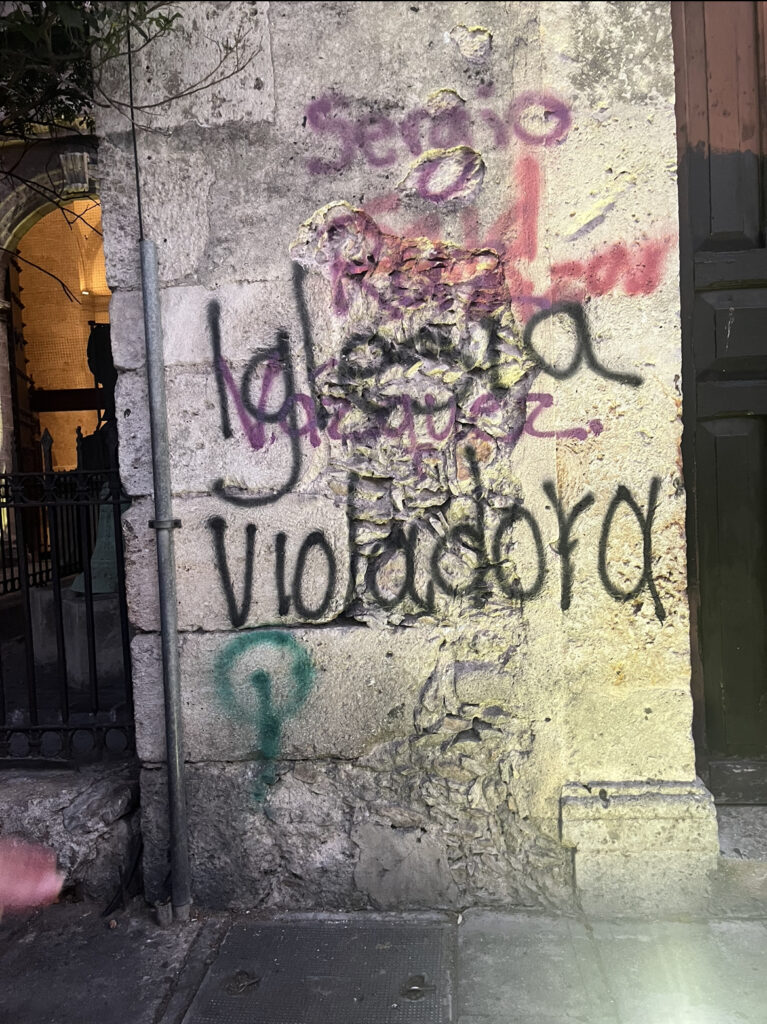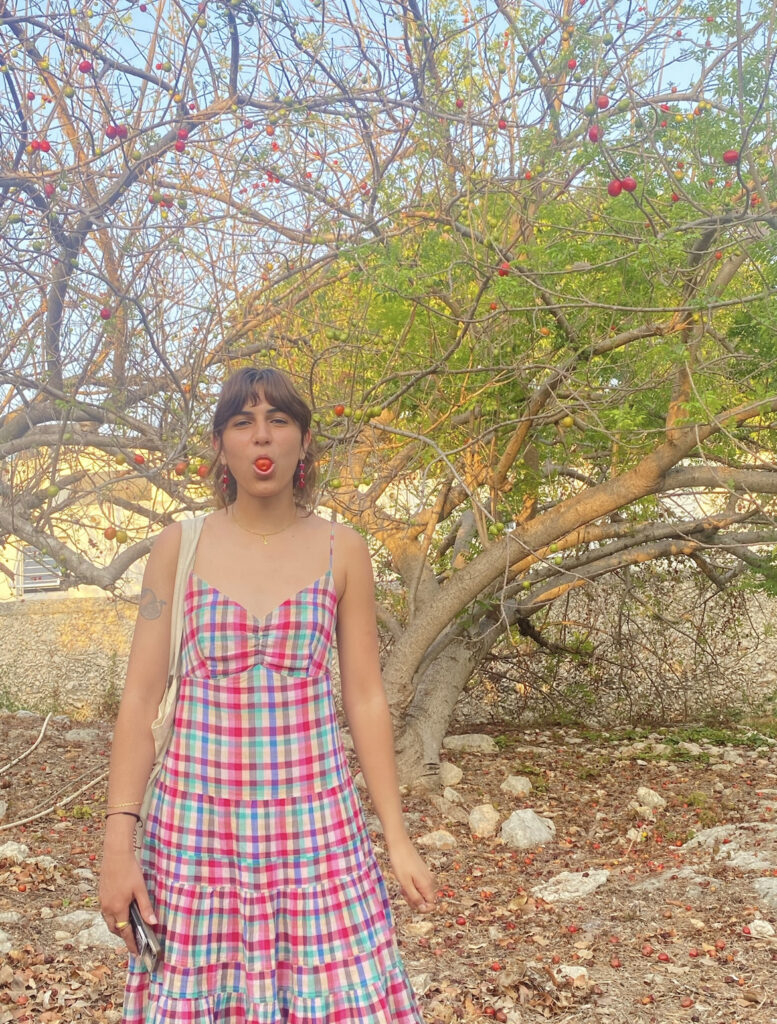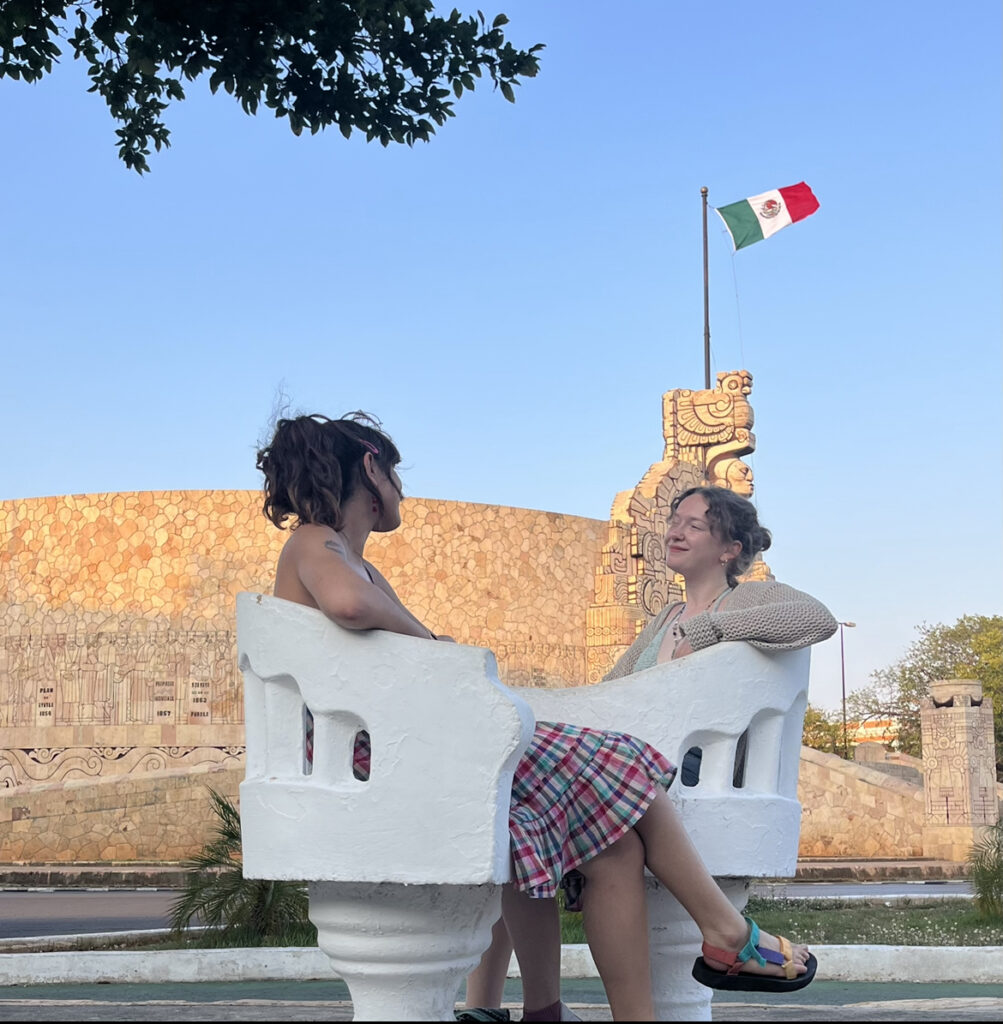Traveling has always had a funny way of reminding me of my mortality. My time in this country is temporary, and so is my time in this world. But What better place to be reminded of death than the vivacious, vibrant city of Mérida and the Yucatán Peninsula? This sounds sarcastic, but I really mean this genuinely, and optimistically.

If you told me five months ago I would be spending an entire month in Mexico studying and going on cultural visits I would have laughed in your face. How would I even get on the plane? Let alone sleep in a foreign place for a night– and several nights at that! And the excursions? Well that would simply fill me with so much anxiety and dread I would not even be able to learn or enjoy any of it. Five months ago I was sure studying abroad was not a privilege people with panic disorder could delight in. I have now proved myself wrong, making this one of many notions I have unlearned on this trip. I have found I am capable of experiencing all of which I desire to experience. Even when fear inevitably creeps in, so will my propensity for adventure.

Now, back to my abrupt opening statement regarding my mortality; it was challenging to suppress my cynical thoughts during my time here. There were several instances at archaeological sites like Chichén Itzá where we would be taught about the history of the ancient Mayan people– the significance the number of pyramid steps had for them, how they played games, meanings they attributed to certain symbols, etc.– and I would just think to myself “how the hell could we possibly know what happened here?” Sometimes I want to look at ancient structures without a sliver of context in wonder and allow my imagination to take hold. I understand I sound like an ignorant tourist for saying this, and that very well is a possibility. Of course I want to learn about the history of the places I see and the people that once resided there, but I also want to look at pyramids and speculate the past life we could never possibly fully know about no matter how many archeological digs and much anthropological research is done. That’s not to say I believe archeology and anthropology are fruitless endeavors– on the contrary. It is vital to try to understand history and piece together what remains of it, but I also think it is an injustice to also not mention the magnitude of what we do not know, and what we will never be able to know. And I believe that is quite incredible, the mystery of life that is. It is something we share with our ancestors all the same. So while I have been reminded of my mortality on this trip, I giggle before giving death a second thought.

I have also found myself falling into periodic academic cynicism as I am going into my senior year of college and am on the cusp of pursuing a PhD in genetics (or something like that, haha, help). My first week in Merida I was feeling particularly dramatic about the discourse I was engaging in. In one journal entry I wrote: “I can look around and make seemingly profound and intellectual observations about the world, colonialism, climate change, and inequality, but they all feel really meaningless and fruitless. I wonder if I will spend my entire life screaming into the lying and comforting void of academia to gain some form of control. If I have no control over the truth I can at least have some control over something tangible and dishonest. Let me dance in the paradigm instead of helplessly trying to crawl my way out of its ruthless infinity.” Wow, I must be such a joy to be around! Ironically, as I continued to learn on our different visits, speakers, and class assignments, I began to have a much more hopeful outlook, and I found great value in ancestral knowledge and the way in which it is passed down. I felt particularly enlightened after reading the assigned excerpt from Braiding Sweetgrass by Robin Wall Kimmerer that highlighted the Mayan idea of “ilbal” and the people made from corn who were not only intelligent, but also “wise enough to be grateful.” Kimmerer urges the reader to see science as a modern ilbal, describing how “Trying to understand the life of another being or another system so unlike our own is often humbling and, for many scientists, is a deeply spiritual pursuit.” These words resonated with me; as I spend more time in the STEM side of academia I find that people, myself included, often focus on the analytical and pragmatic aspects of science and forget that good scientists are also philosophers, as well as sociologists and anthropologists. However, we are not to blame for our short-sightedness, seeing as academia has become a capitalist machine with NIH government grants scarcely given to research initiatives that could not, in some way, be profited off of. In spite of these capitalist (and now I know them to be inextricably colonial as well) systems, I want to strive to be more like the people of the corn told in past Mayan stories who do not need to know all of the answers, and instead participate in a symbiotic relationship with their environment–being sustained by the earth and tending to the sustainability of the earth. I have found that this is the most honest paradigm I could spend my life dancing in.
